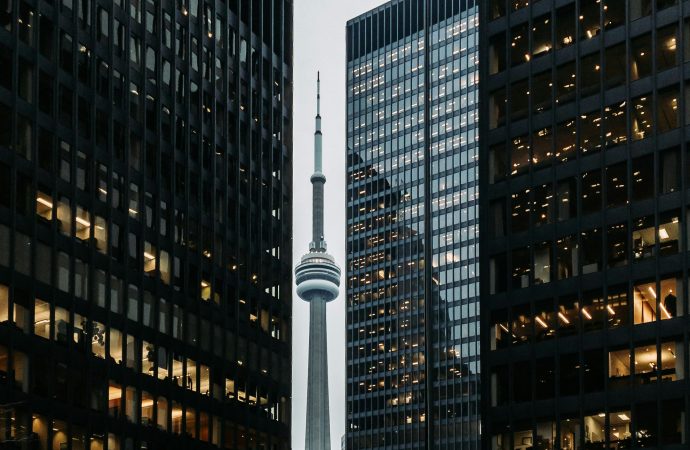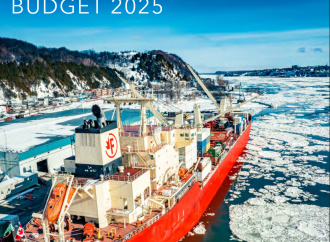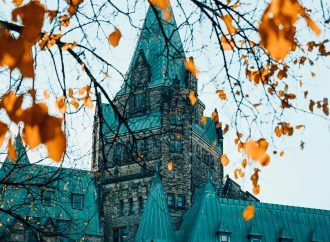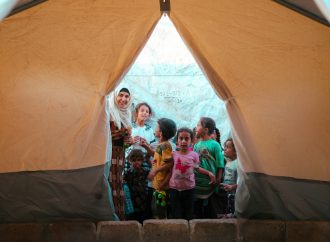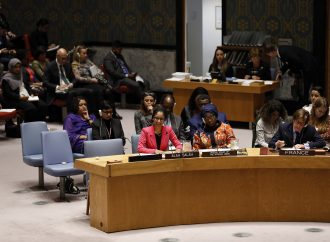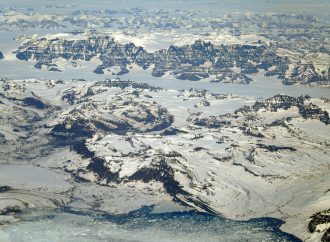The strong interest in the May 12 conference co-hosted by AmbCanada and CIPS on ‘Finding Canada’s Place in a Disordered World’, reflects in a modest way growing public awareness that how Canada secures its place in a rapidly changing world is up for debate.
I was a panellist discussing what this new world means for Canadian diplomacy. One thing is clear: the days when foreign policy was an afterthought, subordinate to domestic political considerations, are over. Or at least should be.
After 1989, Canada had its own version of the “end of history”, with comforting illusions of a stable, liberal international order (with Canada at its heart…) and ever widening free trade, The fall of the USSR and seemingly permanent unfettered access to the USA, in particular, made us think that prosperity was inevitable and our security was someone else’s job. This has ended. Today’s global environment is volatile, competitive, and unpredictable. And in this new world, diplomacy and national security are not luxuries. They are existential. Complacent assumptions about Canada’s place in the world have been upended.
To navigate this disorder, how Canada engages with the world—and why—must be central to both government thinking and public discourse. Our internal strength and unity matter, but we can no longer outsource responsibility for our prosperity and security to global systems or allies even as we still work with them where we can. The burden is ours to bear, guided by our interests, values, and a renewed sense of identity and common purpose.
Values shape how we engage internationally and offer a moral compass. But values alone cannot build an effective foreign policy. Too often, Canada has treated things like democracy, pluralism, and the rule of law as ends in themselves rather than as elements of prosperous and just societies. We need to understand clearly our interests, including those rooted in our values, and pursue them effectively if we are to turn ideals into influence.
To do this, Canada needs a modern, professional foreign service. Diplomacy is deeply personal, built on trust and sustained relationships, but it must be guided by coherent priorities and expertise backed by serious investment. A properly recruited, trained, and developed foreign service is central to this; yet Canada has long neglected this core institution.
Social media slogans and Ottawa’s performative communications are not going to cut it anymore, if they ever did. Good diplomacy is about more than friendly ties with “like-minded” countries. It demands pragmatism, creativity, and deep understanding—not just of those we see as our friends, but also of those whose outlooks diverge from our own—we may discover that some of our interests, in fact, overlap.
We need diplomats who understand the world through lived experience, grasp the histories, speak the languages, and can interpret the motivations of other states. And we need to equip them with the tools, authority, and resources to do their jobs. Competing demands are many and a well-funded foreign and trade ministry is not cheap, but it is a cost-effective complement to defence or development spending when it comes to building global influence.
While it’s essential that we deepen our understanding of resurgent and/or emerging powers like India, China, and Brazil, we should not neglect smaller states. Relationships with them can be pivotal, especially if Canada aspires to global relevance. While we have long leaned on multilateralism (or minilateralism) and the rules-based order, effective bilateral relationships are often the real engines of global influence. Our capacity to navigate a complex web of ties—from Washington to Colombo—can amplify our voice on the world stage.
AI can profoundly change how diplomacy is conducted, but the full benefit will come only if we know what our diplomacy needs to achieve, and if we do not rely on AI to replace expertise and judgement. In essence, we need the expertise to be informed clients and resist the temptation to outsource our knowledge and understanding to an algorithm.
Diplomacy also means tending the diplomatic garden, as one time U.S. Secretary of State George Shultz once put it. You cannot wait until you need a favour to invest in a relationship, and attention to smaller relationships can pay off. You need to show up early, understand people and cultures, and build trust—quietly, steadily, and without fanfare.
Beyond government, our foreign policy ecosystem needs to be enriched by business leaders, academics, think tanks, civil society, and media with genuine international experience and insight. There has been some progress at Canadian universities and think tanks in this regard, but the coverage when allegations of Indian involvement in the Nijjar murder case erupted showed just how limited our geostrategic understanding can be. We need a deeper bench who know the wider world, not to mention Canada’s history.
Inside Global Affairs Canada (GAC), the culture must also change. Over-management stifles initiative, and diplomacy suffers when entrepreneurial thinking is suppressed (the jealous guarding of reporting that reaches senior management or the political level is emblematic of this). Diplomats must be encouraged to ask hard questions, take risks, and—crucially—learn from experience. A culture that insists every initiative is a success leaves no room for learning from its failures.
Since 2023, GAC’s latest transformation exercise has sought to bring some cohesion and modernity to a deeply siloed organization. True to form, however, it seems process and values heavy while avoiding substantive action on some of the more fundamental problems, especially in terms of organization, human resources, and communications, both internal and external.
Finally, Canada needs a serious foreign policy review that goes well beyond Ottawa, and is completed in months, not years: an open process that engages Canadians, including those who do not always agree with prevailing assumptions. A credible and enduring foreign policy will reflect who we are, what we care about, and what we stand for. Even as it requires leadership to develop and pursue, that kind of purpose cannot simply be imposed from above. It needs engagement and a willingness to ask questions we do not necessarily know the answer to.
We are at a crossroads. In a world of fractured power and rising disorder, Canada cannot drift. We need to be clear-eyed, confident, and committed. The opportunity to redefine our place in the world is here. Let’s not waste it.


